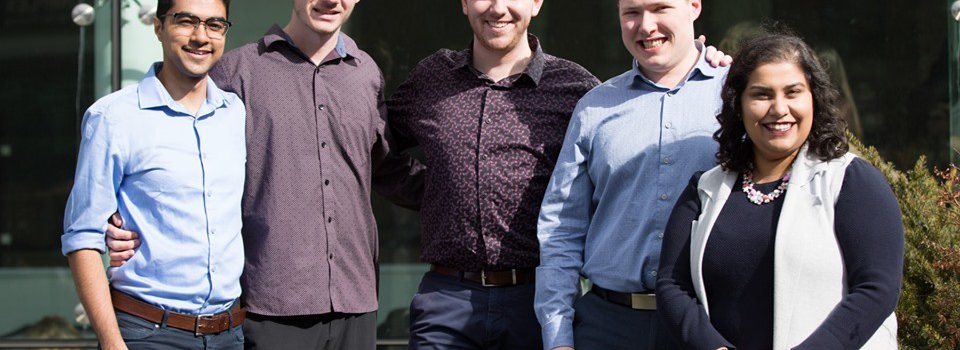Adam Brown is in his second year as Vice President External of the University of Alberta Students’ Union. He got candid to discuss what advocacy looks like at the UASU, and what ‘representing the student voice’ really means.
What does it mean to represent the student voice?
Of the three things that the UASU is–businesses, services and advocacy–advocacy is one of the most valuable aspects of what we provide, because it represents the student voice to the university and all levels of government. Representing a group of about 32,000, we work to make sure that voice is strong, but also properly informed.
How does the UASU establish what the ‘student voice’ is, since it represents 32,000 different voices on campus?
Essentially, we stay non-partisan. This has been the case, informally, for about the past 20 years, but last year it was introduced as official policy. This means we don’t support or oppose parties or candidates. We have a wide variety of political perspectives on this campus, and every single student that we represent we have to represent to the best of our abilities.
This doesn’t mean we don’t take strong positions–we just keep it within the scope of student experiences and post-secondary education, because making the student experience better is what our members pay fees for. And there’s been a lot of value in our advocacy work–we’ve had some big wins within the past few years (like securing more sustainable grant funding, our work on Bill 19, and getting rid of iClickers in classrooms).
We try to be a stakeholder that represents a very large group so we can actually be at the political table to solve problems. There are big advantages with this kind of advocacy, like we saw with Bill 19.
How does the UASU navigate that tricky space of representing student voices while also trying to work with a lot of different political bodies?
We’re in a complex situation. We represent so many students, but we also have to figure out where we fit with other organizations that are working toward solving issues that are close to us, like the existential crisis of climate change. We have to take a pragmatic, post-secondary focused approach to these issues, because that’s where we fit in. To do this to the best of our abilities, and without jumping to conclusions too quickly, we establish policies that are created through a thorough process of student consultation, and we can’t take an official stance on something without a policy established.
To make sure we’re doing this the right way, we really rely on having many different student voices when figuring out how to approach an issue. It shouldn’t be a silent majority versus a vocal minority. Students voicing their concerns is how we move forward as a students’ union. That literally helps inform how we take stances–opening up the door to issues and causing discussion.
What’s the benefit of students’ unions, especially in the current political context?
We have this really great governance network that a lot of students’ unions don’t. For example, we were one of the first in the country to have a Research and Advocacy department, and same with Discover Governance. We put our resources into initiatives that actually show students that we’re here for you, represent you, and that you feel a sense of ownership in the UASU.
The existence of students’ unions represents a collective, united student voice. There are 32,000 members of the UASU that we represent. And we work with both Council of Alberta University Students (CAUS) and Canadian Alliance of Student Associations (CASA) to strengthen the student voice provincially and nationally.
What can students do to support the specific issues they care about?
Get behind the causes that are important to you. If you want to participate in events like the climate strike this Friday, go for it! no one is saying no. Get vocal on social media, attend rallies you want to be at–but voting is the number one thing everyone can, and should, be doing in order to make a really big difference.
Adam represents undergraduate students to all levels of government and works with the Council of Alberta University Students (CAUS) and the Canadian Alliance of Student Associations (CASA), in various advocacy efforts. Since 2018, he has been the Chair of CASA and presented the organization's priorities to House of Commons committees and the Prime Minister of Canada. His priorities this year include, but are not limited to, advocating for equitable changes to Alberta's Student Financial Aid system, ensuring mental health funding is consistent, and communicating the benefits of work-integrated learning to the provincial and federal governments.
Our non-partisan Get Out The Vote (GOTV) campaign aims to do just what it says—get you out to vote. Pledge to vote today at licensetocomplain.ca! Because if you don’t vote, you can’t complain.


